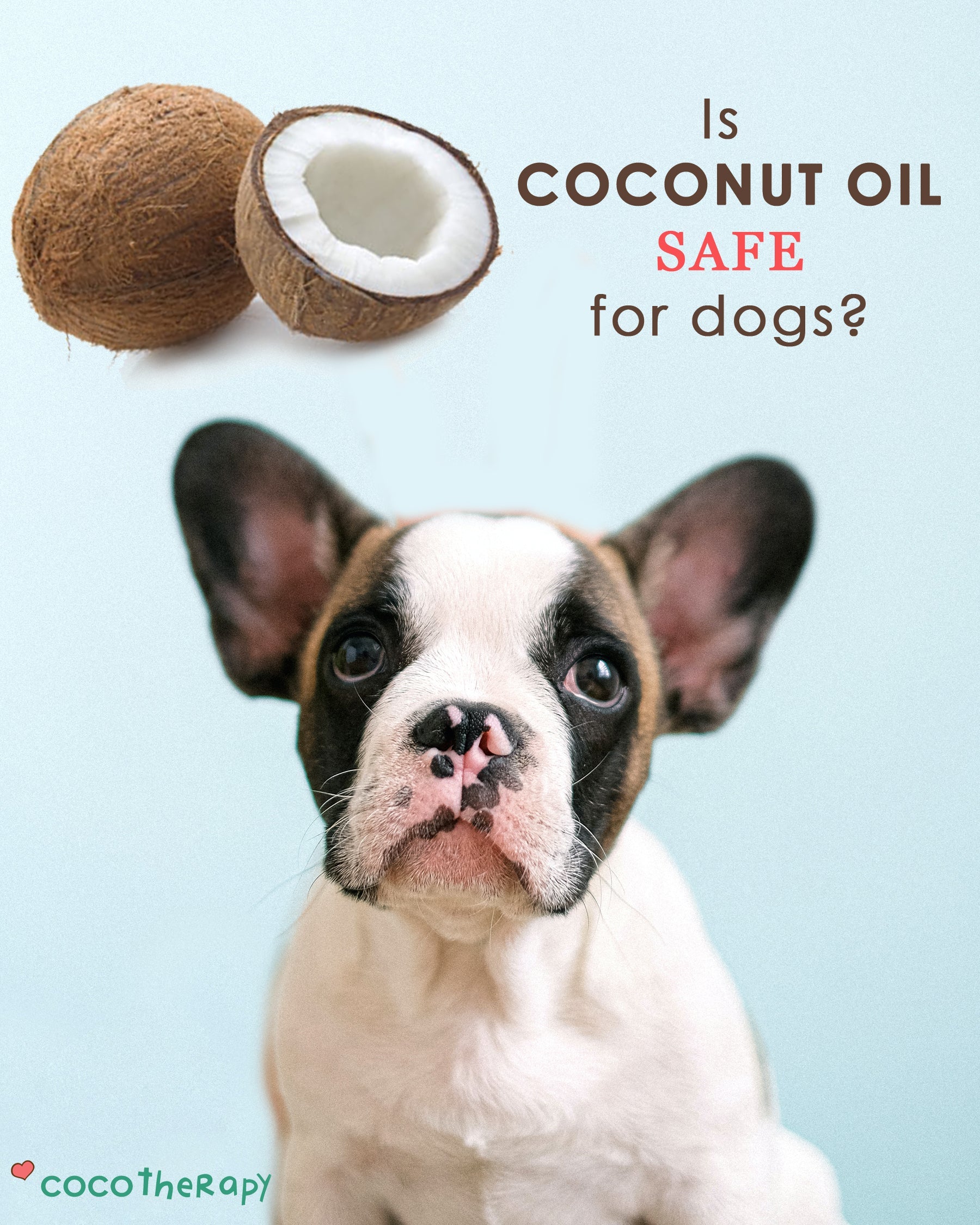Dogs are one of the most popular pets in the world – and for good reason! They’re loyal, friendly, and make excellent companions. But one thing that most dog owners know is that they can be prone to itchiness and skin problems. In this post, we'll explore the top six reasons for itchy skin in dogs. We'll also share some tips on how to soothe your pup's skin and prevent further irritation.

1) Allergies
One of the most common causes of itchy skin in dogs is allergies. Just like humans, dogs can be allergic to a variety of things including food ingredients and environmental allergens such as mold or chemicals. Seasonal allergies caused by pollen and other outdoor allergens also affect many dogs.
If you think your dog may be allergic to something, it's important to speak with your veterinarian. They will be able to help you identify the allergen and recommend the best course of treatment. We love to use virgin coconut oil (VCO) to soothe itchy and inflamed skin caused by allergies. It protects the acid mantle of the skin and is easily absorbed into the skin, to prevent infection or skin inflammation. Check out our previous post, Coconut Oil for Dog Allergies to learn more.
2) Parasites
Parasites like fleas, ticks, and mites can also cause your dog to itch. These tiny insects can bite your dog's skin, leading to irritation and itchiness. But it's not just itchy skin that you have to worry about. Parasites can also transmit dangerous diseases including Lyme disease, Rocky Mountain spotted fever, Anaplasmosis, Ehrlichiosis, and Babesiosis.
To protect your dog from parasites, it's important to take steps to prevent them from becoming infected in the first place. This includes checking them regularly for fleas and ticks, protecting your home and garden, and using natural pest repellants like VCO. Coconut oil has been shown to kill parasites on the dog, by coating their exoskeletons and suffocating them. Learn how to make a your own natural flea and tick repellant using virgin coconut oil or TriPlex MCT-3 Oil in our post, Coconut Oil for Fleas and Ticks.
3) Dry Skin
Dry skin is another common reason for itchiness in dogs. If your dog's skin feels dry or flaky, they may be suffering from dry skin. This can be caused by a variety of factors including weather changes, diet, and age.
To help soothe your dog's dry skin, you can try using a humidifier in your home to add moisture to the air. In addition, it's a good idea to add healthy oils like fish oil and coconut oil to your pup's diet to supply them with essential fatty acids. You can also apply VCO directly to your dog's skin to moisturize and protect it. Learn more about using coconut oil for dry skin in our post, 6 Ways Coconut Oil Promotes Skin and Coat Health.
4) Bacterial & Yeast Infections
Bacterial infections are a common cause of itchy skin in dogs. Skin conditions like pyoderma can occur when bacteria get into your dog's hair follicles or pores, leading to red, inflamed, and itchy skin.
Yeast infections are another type of infection that can cause itchy skin in dogs. These infections are caused by an overgrowth of yeast on the skin, and they're usually found in areas that are warm and moist like the ears and between skin folds.
VCO has natural antibacterial, antiviral, and antifungal properties. This makes it an excellent treatment for both bacterial and yeast infections. In addition, Caprylic Acid in coconut oil is an effective yeast killer. You can apply VCO directly to the affected area or give it to your dog orally. For more information, check out our post, Coconut Oil - a Natural Way to Fight Infections.
5) Hormonal Imbalances
Hormonal imbalances can also cause itchy skin in dogs. Conditions like Cushing's disease and hypothyroidism can lead to a build-up of toxins in the body, which can cause the skin to become irritated and itchy. Dogs may also develop other symptoms, including hair loss, weight gain, and lethargy.
If you think your dog may have a hormonal imbalance, it's important to speak with your veterinarian. They will be able to run tests and determine the best course of treatment. In many cases, dietary changes and supplements can help to correct the imbalance and improve your dog's symptoms.
6) Stress
Finally, it's important to remember that dogs can also experience itchiness due to stress. Dogs may itch as a result of separation anxiety, fear, or even boredom. If your dog seems stressed or anxious, there are a number of things you can do to help them relax. These include providing them with plenty of exercise and training them to stay calm in stressful situations.
Environmental enrichment is also essential for your dog's mental health and wellbeing. This includes providing them with plenty of toys, puzzles, and chews to keep them occupied and prevent negative behaviors from developing. For more information, check out our post, Environmental Enrichment for Pets - What It Is and Why It Matters.
Wrapping Up
Itchy skin can be caused by a variety of factors, including allergies, parasites, dry skin, bacterial and yeast infections, hormonal imbalances, and stress. If your dog is scratching more than usual, it's important to speak with your veterinarian to rule out any underlying health conditions. In many cases, itchiness can be alleviated with dietary changes, supplements, and home remedies like CocoTherapy Organic Virgin Coconut Oil.
Do you have any questions about using coconut oil for itchy skin in dogs? Let us know in the comments below!



